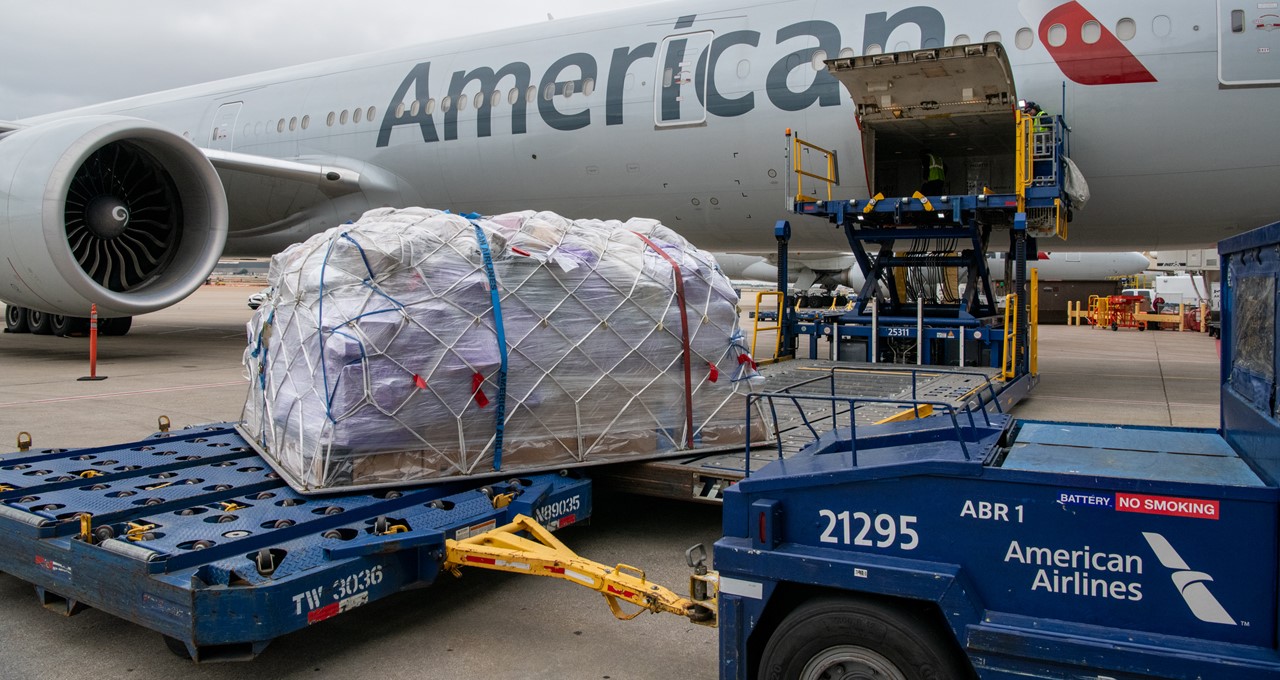If you think flying commercial is stressful, consider the air cargo industry.
Unlike passenger flights, which are often booked and paid for months in advance, cargo shipments are typically booked just 10 days before the planned departure. And customers don’t have to pay until they drop off their shipments.
However, even when customers create a booking to save a spot for their shipment, some cargo never shows up at the warehouse. This wreaks havoc with even the best-laid plans.
Along with its passenger business, American Airlines runs air cargo services worldwide for consumers and businesses. These shipments play an important role in keeping the world supplied with essentials, so the company works hard to make sure goods are transported as efficiently as possible.
That work requires the analysis of many variables, and the most challenging one is determining if a cargo shipment will even show up for takeoff.
Predicting the future isn’t easy, but data science can help. American Airlines uses machine learning and Quadro-powered Z by HP data science workstations to run models that assess how likely it is that a cargo shipment will arrive, which allows them to better plan shipments ahead of time.
The No-Show Package Problem
American Airlines receives thousands of shipments a day, and each needs to be quickly managed by its cargo team. But the logistics of cargo management are especially complex since some unknown number of bookings will never turn up.
“American Airlines uses details from the bookings to plan the layout of cargo holds and see where freight can be placed,” said Tassio Carvalho, head of the Center for Machine Learning and Artificial Intelligence at American Airlines.
If a shipment doesn’t show up on the day of departure, there’s no time to replan the layout or resell the space. This means the configuration of the freight in the cargo hold is less optimal, which results in increased fuel burn for the trip.
“No-shows cost us millions in lost revenue, and many times they can result in us needlessly turning away other critical shipments when we could have otherwise carried them,” said Chris Isaac, managing director of American Airlines Cargo Revenue Management. “Being able to firm up a flight’s bookings in advance allows us to recapture space that will go unused and provide it to others who need it.”
Signed, Sealed and Delivered with Machine Learning
Using Z by HP data science workstations powered by Quadro GPUs, Carvalho and his team created a machine learning model that takes data from the customer’s booking and predicts the likelihood of whether the shipment will arrive or not.
The team built the predictive model using H2O4GPU, an open source, GPU-accelerated machine learning package, and loaded it with 500,000 booking records — a whole year of data. Each record had about 20 features, and those were segmented into about 100 derived features.
About three days before its scheduled flights, American Airlines will run the details of each booking through the model. When the results show a high prediction of a shipment not arriving, the team reaches out to the customer and confirms whether or not they’ll show up for the scheduled flight.
Using machine learning to flag at-risk shipments allows cargo agents to focus on the bookings that have the lowest chance of materializing, and spares them from having to call every customer.
“The model is valuable because it shows which shipments are likely to become no-shows, and which bookings will have variations when they show up at the airport,” said Carvalho. “With the data science workstations, we’re able to get high accuracy with the models — at least 90 percent. This helps us plan our cargo freights better than we ever could before.”
With the Quadro GPUs, Carvalho and his team were able to perform computations up to 10x faster than on CPUs. They get predictions and results much quicker, leading to increased cargo space utilization and reduced fuel burn.
American Airlines also announced they will be implementing a fair booking policy that allows customers to cancel bookings for free with at least 48 hours notice. The latest policy combined with the predictive model enables American Airlines to maximize space on the aircrafts.
“The ability to use advanced analytics to solve one of our industry’s biggest problems is a game changer for American Airlines,” said Isaac. “We have the best data science team in the industry, and we couldn’t be more excited to integrate the model into our business process.”
Dive deeper into this work in the webinar with American Airlines.
Featured image courtesy of American Airlines.
